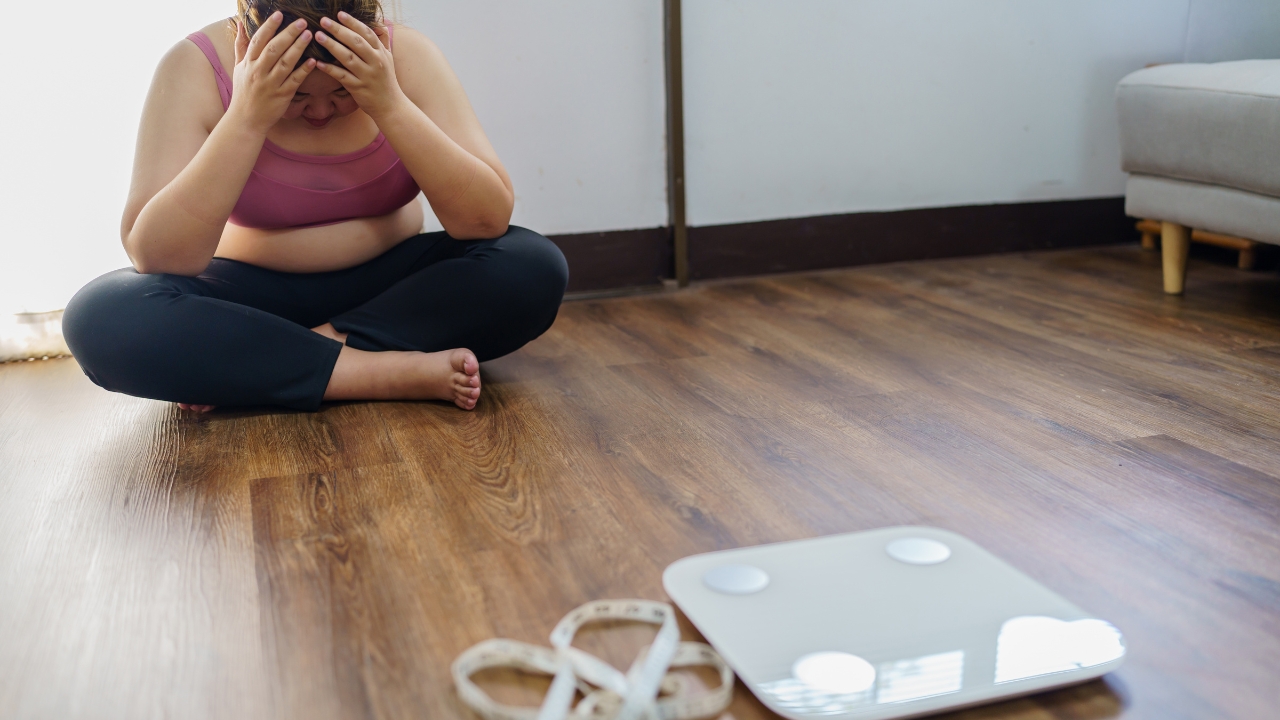Introduction
In today’s fast-paced, demanding life we lead, the anxiety issue has grown to be an issue that is increasingly affecting everyone from all backgrounds and ages. The causes vary, from stress at work and relationship issues to the uncertainty of everyday life. Anxiety has an enormous impact on physical and mental well-being. But there are methods that are effective to ease anxiety and reduce stress in order to promote calmer minds and a healthier lifestyle.
Understanding Anxiety
Before exploring ways to manage anxiety, it is essential to know the nature of anxiety and the ways it manifests. It’s a normal reaction to stress. However, when it is excessive or persistent, it could cause a variety of physical and mental health difficulties. The most common signs of anxiety are anxiety-related restlessness, excessive worry and fatigue, muscular tension, and difficulty focusing. Understanding these symptoms can be the initial step towards taking care of and managing anxiety.
Mindfulness and Meditation
An effective method of tackling anxiety is to practice mindfulness, or meditation. The techniques involved in mindfulness are being present in the moment, without judgement, and allowing people to let go of anxiety-related thoughts. Stress reduction through mindfulness (MBSR) and meditation on mindfulness have been proven to alleviate anxiety and enhance overall well-being. When people integrate mindfulness into their daily activities, they can gain an increased awareness of their feelings and thoughts, which allows them to react to stressful situations in a more relaxed and calm manner.
Deep breathing and relaxation techniques
The practice of deep breathing and relaxation strategies are effective and simple methods to manage anxiety. If anxiety is present, your body’s reaction is usually quick and shallow breathing. Through a consciously slowed-down breathing rate as well as engaging in some deep diaphragmatic breathing, people can trigger their body’s relaxation reaction. The gradual relaxation of muscles, guided imagery, and other activities to relax can help ease tension in your body and create a feeling of tranquility.
Cognitive Behavioral Therapy (CBT)
Cognitive-behavioral therapy (CBT) is widely accepted as a treatment method for anxiety-related issues. CBT concentrates on the identification and challenge of thoughts that are negative and then replacing them with real and positive beliefs. By using CBT, patients are able to change their thinking and build more effective coping strategies. The therapy approach is typically carried out under the supervision of a certified therapist; however, a variety of self-help materials as well as workbooks can be found for those who wish to learn CBT strategies at their own pace.
Regular Exercise
Physical exercise isn’t just healthy for your body; it also makes an equally important contribution to boosting mental health. Regular exercise is proven to decrease depression and anxiety through the release of endorphins, which are the body’s natural mood boosters. It doesn’t matter if it’s a quick exercise, a yoga routine or an intense fitness routine; adding physical exercise to one’s schedule can make a huge difference to the overall health of your mind. Physical exercise is not just helpful in controlling anxiety; it can also serve as a preventative precaution against future anxiety episodes.
Balanced Nutrition
Diet plays an essential aspect in ensuring mental wellbeing, and some foods may increase or decrease anxiety symptoms. Eating a healthy, balanced diet that incorporates whole grains, lean protein, fruits and veggies provides vital nutrients to support brain function and general well-being. Also, keeping a low caffeine or sugar consumption is crucial because these chemicals could cause increased anxiety as well as disrupt sleep patterns.
Adequate Sleep
The two have two distinct relationships. Anxiety is a factor that can affect sleep, and sleep inconsistency may aggravate symptoms of anxiety. The practice of establishing healthy sleeping habits is essential to managing anxiety. Establishing a comfortable bedtime routine, ensuring a regular sleep routine, and creating an environment that is comfortable for sleep will help improve quality sleep. If the insomnia continues, getting help from a doctor is suggested.
Social Support
Making connections with other people and creating an effective social network can be crucial to reducing anxiety. Discussing worries and anxieties in a safe environment with family, trusted friends, or even a psychotherapist can give you emotional support and a fresh perspective. It is important to build connections that create a sense of belonging and empathy. Social connections that are supportive do more than just provide comfort in stressful times; they can also add to a person’s overall resilience to anxiety.
Time Management and Prioritization
A never-ending list of tasks can lead to anxiety. Learning effective techniques for managing time and how to prioritize tasks helps people gain an understanding of how they can manage their lives. Breaking tasks down into more manageable actions, setting realistic goals and delegating responsibility as often as possible all aid in a more stable and less stressful life.
Limiting Information Overload
In the digital world we live in, continuous exposure to media, news and various other sources of information could cause stress. Breaks from screens and establishing limits regarding media consumption could help avoid excessive information and anxiety. It’s essential to be up-to-date; however, having a healthy balance and picking trustworthy sources of information can ease anxiety brought on by a constant stream of information and news.
Professional Help
Although self-help techniques are beneficial, seeking help from a professional is essential for those suffering from severe or constant anxiety. Health professionals in the field of mental health, such as psychologists, therapists, and psychiatrists, are specially trained to deliver individualized treatments and assistance. Sessions with therapists can provide an opportunity to examine the root of anxiety and create individualized ways to cope. Sometimes, medications might be prescribed to relieve anxiety symptoms, specifically in extreme anxiety conditions.

Continuing the discussion
Embracing a Lifestyle of Mindful Habits
To enhance your quest to have a more peaceful mind, incorporating mindful activities into your daily routines can have a profound effect. It involves expanding the concepts of mindfulness to encompass more than specific activities, such as meditation, to cover everyday things. The practice of mindful eating, for instance, can encourage people to take time with every bite while paying particular attention to texture, taste and feeding the body. In the same way, adding the practice of mindfulness to daily things, such as taking a walk or going to work, could create calm even in the midst of a hectic day.
Creative Expression as an Outlet
Participating in activities that stimulate creativity is a great method of reducing anxiety. It doesn’t matter if it’s painting, writing or any other type of art that allows one to manage their emotions in a constructive manner. The pursuit of creativity is not just an opportunity for self-expression but also a respite from a stressful mind, which allows the mind to concentrate on the present moment and enjoy creating.
Cultivating a Positive Mindset
The shift to a more positive attitude requires you to direct your thoughts toward gratitude and positivity. A gratitude journal that allows people to record items they’re thankful for every single day helps alter the way in which the brain handles information. The practice helps the brain to be focused on the positive things in life, which can help to create a more positive attitude. In addition, practicing self-compassion as well as challenging negative self-talk are crucial to cultivating positive mental attitudes.
Yoga and Tai Chi
Yoga as well as Tai Chi are mind-body practices that incorporate physical exercises along with breathing exercises as well as meditation. They have both been proven to reduce stress and encourage calm. The smooth, fluid moves in Tai Chi and the various postures of yoga help to create an integration of the body and mind, enabling people to become more aware of the sensations of their body and develop a feeling of peace within.
Nature Connection
Time spent in nature has been proven to provide many mental health benefits, such as anxiety reduction. If it’s hiking in the woods, taking a walk in the park, or just sitting at the water, nature can have a calming effect on your mind. The sights, sounds and scents of nature offer an enjoyable escape from the stresses of our modern lives, providing the opportunity to reflect and relax.
Setting Realistic Goals
Setting and attaining reasonable goals can increase confidence and be an effective way to combat anxiety. Breaking larger goals down into manageable, smaller tasks will give you a feeling of achievement throughout the process. Small victories build momentum and create a positive feedback loop. It eventually reduces the feeling of overwhelm and stress.
Establishing Healthy Boundaries
Setting and maintaining safe boundaries is essential to safeguarding mental wellbeing. It involves knowing one’s limitations and being able to communicate clearly with others regarding personal concerns. In both professional and personal relationships, setting the right boundaries will help avoid burning out and stress that causes anxiety.

Ongoing Self-Reflection
Achieving a peaceful mindset is an ongoing process which is aided by regular self-reflection. The ability to evaluate emotions, spot factors that trigger anxiety, and assess the impact of your coping methods can help individuals adapt and develop their strategy. Writing down mindfulness-related journal entries, meditation check-ins and regular meetings with a therapist could provide important insights into your personal development and areas for improvement.
Joining supportive communities
Being able to connect with other people who have the same struggles can give you the feeling of being part of a community as well as acceptance. Joining support groups or online communities that are dedicated to mental health and anxiety lets people share their experiences, learn from each other, and access a broader network of assistance. Knowing that you are not the only one on their journey is a calming and encouraging element of recovering.
Embracing Holistic Wellness
Prioritizing Sleep Hygiene
Based on the importance of rest, making sure you are focusing on the quality of your sleep is essential. Making a habit of a steady sleep schedule, making a restful time to sleep, and creating an environment that is comfortable for sleep can improve the quality of sleep. Restricting time spent on screens prior to bedtime and abstaining from stimulants like coffee at night will help you relax and rest.
Mindful Technology Use
Today, in a world where technology is ubiquitous and ubiquitous, a mindful approach to technology is crucial to maintaining wellbeing. Limiting time spent on screens prior to bedtime will help prevent overstimulation, which could cause anxiety. Furthermore, utilizing technology with care, like through mindfulness apps and relaxation podcasts, is able to transform devices into tools that promote wellbeing rather than cause stress.

Practicing Gratitude
Implementing gratitude-based practices into everyday routines can help create an optimistic outlook. Spending a few minutes every day to think about and show gratitude for the good things in life will help you focus on positive things instead of worrying thoughts. You can do this by writing down your thoughts, creating an imaginary list, or simply expressing gratitude towards others. The practice of cultivating gratitude can be a beneficial viewpoint shift that emphasizes all the positive aspects of our lives.
Engaging in Laughter and Play
Laughter can be a great relaxation and mood enhancer. Participating in things that create enjoyment, laughter and a sense of joy helps reduce the intensity of stress. It doesn’t matter if it’s watching a show, playing games, or interacting with fun pets; adding the occasional moments of laughter to your daily routines can boost your satisfaction.
Mindful Nutrition
Alongside ensuring an appropriate diet, staying aware of the link between diet and mental well-being is vital. Certain food items, like ones that are rich in omega-3 fatty acids, antioxidants and vitamins, are linked to improved mental health. In contrast, overconsumption of processed foods, such as sweet snacks and processed foods, as well as caffeine, can cause an increase in anxiety. Making a conscious and nutritious diet can benefit both mental and physical wellbeing.
Progressive Exposure
If you are a person who has particular fears or anxieties that cause anxiety, an approach known as progressive exposure may be helpful. It involves slowly and steadily confronting a fearful situation at a steady pace, which allows one to develop resilience and decrease anxiety as time passes. This method of treatment is typically used in conjunction with the therapist. It can also be adjusted to meet the needs of each individual.
Engaging in Meaningful Activities
Being involved in activities that provide an inner sense of fulfillment and satisfaction can be the ideal remedy for anxiety. It doesn’t matter if it’s volunteering, taking on interests, or participating in artistic pursuits; these kinds of activities can positively impact your mental wellbeing. Finding fulfillment and meaning beyond the causes of anxiety can help build a more balanced and flexible mindset.
Mindful Communication
Effective communication is crucial to healthy relationships and, consequently, mental wellbeing. The practice of mindful communication involves attentive listening, communicating clearly but respectfully, and being in tune with the emotional demands of others. Establishing strong, positive relationships by communicating effectively can create feelings of connectedness and security. It also reduces anxieties and feelings of being isolated.
Reflecting on Progress
Retrospectively reviewing your own improvement in coping with anxiety is vital to maintaining determination and resilience. The joy of celebrating achievements, regardless of what they are, boosts the efficiency of the strategies used to cope and encourages you to carry on your journey. Recognition of progress and appreciation for your efforts creates a positive feedback loop, which increases confidence in control and the ability to master fear.
Seeking Professional Guidance When Needed
Although self-help techniques are beneficial, there are times when professional assistance is necessary. When anxiety-related symptoms continue to be persistent or have a significant impact on everyday functioning, consulting an expert in mental health is a wise move. Counselors, psychologists, and psychiatrists are able to provide individualized advice, therapeutic intervention, and, in the event of a need, the right pharmacological treatment to meet the individual’s needs.
Conclusion:
The battle against anxiety is a complex endeavor that covers a range of mental, physical and emotional health issues. An integrative approach acknowledges the interconnectedness between the way of life, mental attitude and strategies to cope. Through embracing mindfulness, fostering positive relationships and focusing on self-care, people can develop peace of mind and increase their confidence in facing the challenges of life. It is a continual course defined by self-discovery, continual learning, and the capacity to live a life that is focused on happiness and mental well-being.







